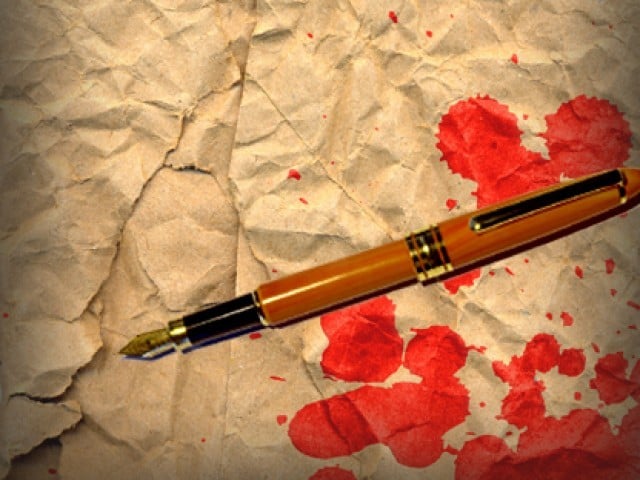
The group noted that as many as seven journalists were killed in Pakistan in 2012, making sure Pakistan remained third as the world's deadliest place to report the news. Five of the journalists killed were gunned down in targeted attacks. Four of those who were targeted and four worked in Balochistan, where journalists are increasingly caught between separatist factions and Pakistani military forces.
"Government is doing nothing. They just condemn and beyond that there is no concrete action," said Umar Cheema, a reporter for Pakistan's English-language daily The News. Cheema, who was abducted and assaulted himself in 2010, also faulted media companies for not doing enough to protect their reporters.
With 19 unsolved journalist murders in the past decade, the country is ranked 10th on CPJ's Impunity Index, which highlights countries where journalists are murdered regularly and the killers go free.
The combination of violence and impunity has driven six Pakistani journalists into exile, twice the number that fled the previous year, according to CPJ's 2012 report on exiled journalists.
The CPJ's report card on Pakistan noted that most of the journalists killed were covering politics. War was a close second for beats coverage which resulted in the death of journalists. Crime was distant third.
Russia and Brazil were among 10 countries where press freedom suffered the most in 2012, according to the list compiled by the New York-based CPJ.
CPJ, which published its "risk list" for the first time, also cited Syria and Somalia, which are racked by conflict, along with authoritarian-ruled Iran, Vietnam and Ethiopia.
But it said more surprising was the fact that five countries on the list - Brazil, Turkey, Pakistan, Russia and Ecuador - "practice some form of democracy and exert significant influence on a regional or international stage."
In compiling the list, the group examined six press freedom indicators: fatalities, imprisonments, restrictive legislation, state censorship, impunity in anti-press attacks and journalists driven into exile.
It said the countries listed were not necessarily the world's worst places for journalists, which would include countries such as North Korea and Eritrea, but represented those with "the most significant downward trends."
Brazil's inclusion stemmed from the murder of four journalists in relation to their work last year, making the country the world's fourth deadliest for the press, CPJ said.
Six of the seven Brazilian journalists killed in the past two years had reported on official corruption or crime and all but one worked in provincial areas, the report noted.
Russia was cited after President Vladimir Putin signed a series of restrictive laws including the criminalisation of defamation and a statute governing online content.
CPJ said the Internet measure gives authorities broad power to block sites deemed to have "unlawful content," which could include independent news websites.
Syria became the world's deadliest place for journalists with at least 28 killed and two others missing between January 1 and December 10 last year, CPJ said.
The group said Turkey became "the world's leading jailer of journalists" with 49 imprisoned for their work as of December 1. Iran was next with 45 journalists behind bars.
Ecuador was cited for new legislation that bars the news media from promoting political candidates "directly or indirectly" in the 90 days before an election and for the intimidation of journalists by President Rafael Correa's administration.
Ethiopia was cited for its "sweeping anti-terror law to silence critics" and the jailing of six journalists. CPJ said at least 49 Ethiopian journalists have been forced into exile since 2007, the third highest total worldwide.
Violence against journalists worsened last year in Somalia, where 12 journalists were killed, all in targeted attacks.
Vietnam made the list for its strict controls on news media and 14 journalists behind bars. Many of those detained have been charged or convicted of anti-state crimes related to their blog posts on politically sensitive topics.
Overall, CPJ identified 232 journalists behind bars on December 1, an increase of 53 over 2011. The group has identified 70 journalists killed worldwide in 2012 and six so far this year.
COMMENTS (4)
Comments are moderated and generally will be posted if they are on-topic and not abusive.
For more information, please see our Comments FAQ















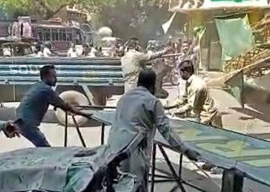

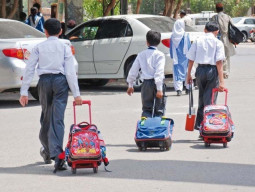

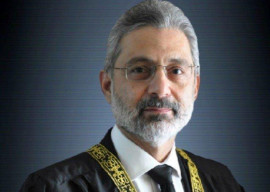
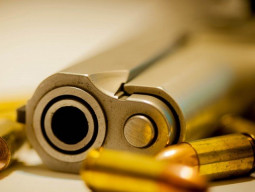














1714129906-0/Clint-Eastwood-(1)1714129906-0-270x192.webp)






@gp65:
I rather had the dalits, the huge amonts of utterly poor in India in mind. They seem to be ignored while they are the largest simular group of people in India. Also religious vioence seem to not reach the frontpage. Simular topics are fully exposed in Pakistan even if it stirs up the whole nation.
Religion perhaps is a thing wich could suffer moore by the hands of the journalists. I agree.
@Mohsin: There was a whole India against corruption movement which was widely covered by media as a result of which several ministers are in jail. Even the BJP president had to resign his post due to allegations of tax evasion. The Delhi gang rape incident forced the government to review existing laws related to rape. Most recently the helicopter deal with Italy is under scrutiny and it may result in scrapping the deal. The journalists in India speak against government, defense deals and even against religious persona fearlessly. In Pakistan, it is difficult to speak against religious issues or army.The notion that journalists in India are paid off and Pakistani journalists are free is not backed by facts. In Pakistan, journalists do breaking news but do not follow through with the story until policy changes are made. One more thing when democracy was derailed several times Pakistani journalists were silent spectators. When that happened I. India in1975, journalists were out in full force fighting against that. It is also due to effort of Indian media and civil society that over the years both communal riots and hate speech has significantly gone down. Few in Pakistani media dare expose LeJ
God bless all of them, syed saleem shehzad , wali babar , hamid mir
Balochistan sure is dangerous for journalists but thats primarly cause its a warzone.
All together tough Pakistan journalism is top from my point of view(Norway). Here top 3-4 papers(basically reaches the whole population) are paid off by the goverment. Likewise in rest of western europa and upsoming economic powerhouses such as China and India. Pakistan has none of this. Every day you see pure hardcore stuff targeting the goverment(wich also explains why people always are upset with goverments in this country).